#CSR IMPACT
Explore tagged Tumblr posts
Text
Enhancing CSR Impact through collaborating with Marpu Foundation

Impact of CSR on Business.
Corporate Social Responsibility (CSR) has a significant impact on firms, affecting reputation, stakeholder relationships, and resilience in addition to financial measures. Engaging in CSR activities improves brand image, attracting socially concerned customers and investors. Internally, it improves employee morale and productivity. CSR matches with growing rules and cultural expectations, providing extra benefits such as access to money and decreased risk. Furthermore, it promotes innovation, resulting in competitive advantage and market expansion. Businesses handle societal difficulties by engaging stakeholders, so obtaining their social license to operate. Finally, CSR's impact extends beyond profit, promoting positive societal outcomes and contributing to a sustainable future. Companies that integrate CSR into their fundamental strategies achieve financial success while also furthering social and environmental goals.
About Marpu foundation.
Mr. Kadiri Raghu Vamsi, a recognized National Youth Awardee, coined the term "Marpu" to indicate transformation. At the Marpu Foundation, we use individual potential to create positive change in the world. Our primary goals are to promote volunteerism, environmental stewardship, and sustainability. With a team dedicated to affecting change and providing a supportive environment for all, we have been named "The Best NGO in India" for 2020. We empower people to express their ambitions, work toward sustainability, and build alliances with groups that share our vision. Our efforts produce tangible results, not through traditional charity, but through empathy-driven, innovative approaches. Join us as we work to create a more egalitarian and compassionate future.
Why Collaborate with Marpu Foundation?
As businesses aim to make a positive influence on society and the environment, collaborating with the Marpu Foundation NGO can help them amplify their CSR efforts and promote genuine change. The Marpu Foundation is a renowned leader in employee volunteering and engagement.They bring significant experience, networks, and resources to the table, enhancing your CSR initiatives and increasing impact.
The Marpu Foundation's CSR approach places a strong emphasis on employee volunteering and involvement. It operates at 39 locations across 15 states, with over 80,261 volunteers and 10,245,120 beneficiaries. Their work topic revolves around environmental sustainability, economic development, social development, and goal-oriented partnership.
Looking Forward.
As businesses face complex socioeconomic and environmental concerns, collaborating with the Marpu Foundation provides a path to long-term influence. Companies that embrace shared aims, values, and skills may promote good change, foster resilient communities, and contribute to a more sustainable and fair future for all.
Conclusion.
Working with the Marpu Foundation offers a great chance to advance CSR initiatives and bring about significant change that is in line with particular SDGs. Businesses may increase their effect and leave a long-lasting legacy of social and environmental responsibility by coordinating their strategies, mobilizing their resources, and involving the community. Let's work together to fully realize the potential of cooperation in order to build a more hopeful and sustainable future for future generations.
2 notes
·
View notes
Text
Enhancing CSR Impact through Collaboration with Marpu Foundation
The importance of corporate social responsibility (CSR) is higher than ever in the quickly changing business environment of today. Working together with like-minded organizations is crucial as companies look to improve society and the environment. The Marpu Foundation is one such collaboration that has a great deal of potential to increase the impact of CSR.
At the forefront of social change and sustainable development, the Marpu Foundation | NGO has established itself as a beacon of hope for communities worldwide. With a diverse portfolio of initiatives spanning education, healthcare, environmental conservation, and more, the foundation embodies a commitment to creating a better future for all.
"Marpu" - a synonym for transformation - was established by the respected National Youth Awardee, Mr. Kadiri Raghu Vamsi. Marpu Foundation | NGO focuses on harnessing the potential of individuals to bring about positive change in the world. With a team committed to effecting change and providing a supportive space for all, the Marpu Foundation earned the title of "The Best NGO in India" in 2020.

Emphasizing employee involvement and volunteering is one of the main features of the Marpu Foundation's CSR approach. It has over 80,261 volunteers and over 10,245,120 beneficiaries operating from 39 locations in 15 states. The themes of their work center on environmental sustainability, economic development, social development, and partnership for the goals.
Partnering with the Marpu Foundation not only enhances corporate social responsibility (CSR) efforts but also significantly contributes to advancing Sustainable Development Goals (SDGs). Marpu Foundation's projects are exemplary models of sustainable development, promoting social, economic, and environmental well-being. Here's how partnering with Marpu can boost CSR efforts and support SDGs, illustrated through some of their impactful projects:
1. Education Initiatives (SDG 4 - Quality Education): Marpu Foundation's education initiatives focus on providing quality education to underserved communities. Partnering with Marpu in these initiatives allows corporations to support SDG 4 by investing in programs that enhance access to education, improve literacy rates, and empower marginalized groups. For example, a partnership could fund the establishment of schools in rural areas, provide scholarships for underprivileged students, or support vocational training programs.

2. Clean Water and Sanitation (SDG 6 - Clean Water and Sanitation): Marpu Foundation undertakes projects aimed at ensuring access to clean water and sanitation facilities, particularly in areas facing water scarcity and poor sanitation. Collaborating with Marpu in such projects enables companies to address SDG 6 by funding the construction of water infrastructure, implementing water purification systems, or promoting hygiene awareness campaigns in communities lacking access to clean water and sanitation.
3. Women's Empowerment (SDG 5 - Gender Equality): Marpu Foundation is committed to promoting gender equality and women's empowerment through various initiatives such as skill development programs, entrepreneurship training, and advocacy for women's rights. Partnering with Marpu in these endeavors allows corporations to support SDG 5 by investing in projects that foster economic independence and social empowerment among women, thereby contributing to creating more inclusive and equitable societies.
4. Environmental Conservation (SDG 13 - Climate Action): Marpu Foundation actively engages in environmental conservation efforts aimed at mitigating climate change and preserving biodiversity. Corporations can enhance their CSR initiatives by partnering with Marpu in projects such as afforestation campaigns, sustainable agriculture practices, or renewable energy projects. By supporting these initiatives, companies can align with SDG 13 goals and demonstrate their commitment to environmental stewardship.

5. Healthcare Access (SDG 3 - Good Health and Well-being): Marpu Foundation works towards improving healthcare access and promoting health awareness in underserved communities. Collaborating with Marpu in healthcare projects allows corporations to contribute to SDG 3 by funding medical camps, establishing healthcare centers, or supporting vaccination drives. By investing in healthcare initiatives, companies can help reduce healthcare disparities and improve the overall well-being of communities.
In conclusion, partnering with the Marpu Foundation offers corporations a unique opportunity to bolster their CSR efforts while making meaningful contributions towards achieving the Sustainable Development Goals. Through strategic collaborations with Marpu, companies can address pressing social, economic, and environmental challenges, driving positive change and creating a more sustainable future for all.
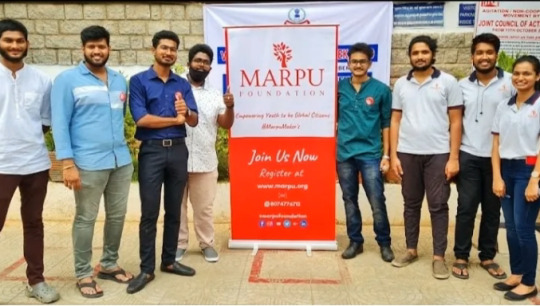
#Enhancing CSR Impact through Collaboration with Marpu Foundation#CSR impact#csr activities#csr#marpu foundation#best ngo in india#sustainable development#volunteering#largest volunteer organisation#quality education#gender equality#good health#economic growth#poverty#inequality#climate action#water and sanitation
2 notes
·
View notes
Text
Beyond CSR: Invest in Systemic Change
Cavin Odera about the System changer network Kenya What if corporate engagement in Africa went beyond one-off projects and topic driven initiatives — and focused in addition on building the systems that empower long-term change? At System Changer Network Kenya, we unite grassroots NGOs working on education, health, resilience, and poverty reduction. These organizations develop practical, local…

View On WordPress
#betterworld#business#Csr#impact#Kenya#network#poverty#SCN#social impact#system changer network#value based philanthropy
0 notes
Text

Technology solution for the CSR Programs
Unlocking Social Impact: Learn about Impact Evaluation of CSR Projects and the Theory of Change in CSR programs. Overview of ESG and CSR advisory. Technology solution for the CSR Programs | Impact evaluation of CSR projects, theory of Change Programs
#microfinance institutions#impact assessment#onlyfans tease#tease pic#hot pics#finance#csr projects#impact evaluation of csr projects
1 note
·
View note
Text
CSRD Omnibus Proposal and Impact on CSR
Cority recently hosted a timely webinar unpacking the Omnibus proposal and its potential to reshape how companies approach the Corporate Sustainability Reporting Directive (CSRD). Led by sustainability experts Adèle Roncière, Marion Dop, and Louise Marques, the session explored what’s changing, what it means for businesses, and how organizations can continue preparing during this period of…
0 notes
Text
The Metrics That Matter: Why Measuring Corporate Good Needs a Revolution
In a village just outside Nairobi, a multinational company funded the construction of a new water pump. A ribbon was cut. Smiles were photographed. A press release declared: “Clean water for all.” But within months, the pump broke. No one had been trained to repair it. No local ownership, no follow-up. The company moved on. The community didn’t. This is the story of too many corporate social…

View On WordPress
0 notes
Text
Measuring Impact: How Companies Assess Their CSR Initiatives
<h1>Measuring Impact: How Companies Assess Their CSR Initiatives</h1> <p>Corporate Social Responsibility (CSR) has transitioned from being a secondary consideration for businesses to a core component of their strategy and operations. In this age of heightened consumer awareness and demand for corporate accountability, measuring impact is critical for companies committed to social good. This…
#Assess#best practices for brand management#Branding strategies for small businesses#building brand loyalty#business growth strategies#Companies#corporate social responsibility#creating a strong brand identity#CSR#customer relationship management#digital marketing for startups#e-commerce tips for businesses#how to scale your business.#how to start a successful business#Impact#importance of social media for businesses#influencer marketing for brands#Initiatives#Measuring#small business funding options#top business trends 2024
0 notes
Text
Employee Volunteering Program in India | SoulAce
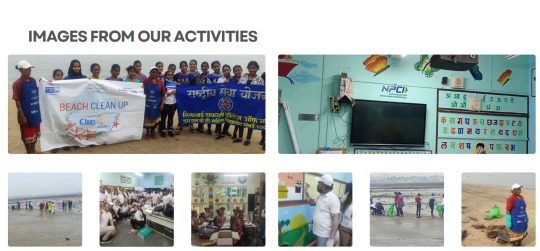
Looking for the best employee volunteering programs in India? SoulAce offers a data-driven approach, a strong network of grassroots NGO partners, and a robust technology platform. Our end-to-end solution helps you seamlessly manage and scale your employee volunteering initiatives. Contact us today to learn more!
0 notes
Text
The Guide to Effective CSR Collaboration with Marpu Foundation
THE GUIDE TO EFFECTIVE CSR COLLABORATION
WITH MARPU FOUNDATION
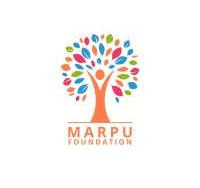
In a world grappling with global warming, devastating earthquakes, and relentless climate change, a beacon of hope emerges: the powerful alliance between Marpu Foundation and Corporations. These unlikely partners are joining forces to engineer positive change, breathing life back into a planet teetering on the brink. Through strategic planning and bold execution, they are transforming lives and rewriting the future of our Earth.
WHAT IS CSR AND WHY IT IS NEEDED:
Corporate Social Responsibility (CSR) is more than just philanthropy. It's a powerful partnership between businesses and NGOs, a commitment to ethical and sustainable practices. By embracing CSR, corporations can transcend profit-driven goals. They can become agents of positive change, combating poverty, eradicating hunger, and safeguarding our planet. This isn't just about doing good; it's about crafting a future where businesses thrive alongside a healthy society and a thriving environment

IMPLEMENTATION AND GOALS:
CSR champions diversity within the workplace, tackles pressing issues like plastic pollution, and empowers underprivileged students through education. By driving innovation of CSR with the Marpu foundation catalyze a global shift towards a more conscious and equitable world. Aligning CSR initiatives with the specific goals of Marpu Foundation is crucial for maximizing impact. Through smart, collaborative efforts, we can achieve measurable outcomes and inspire positive change across society. CSR collaborations with the Marpu Foundation can focus on education, healthcare, environmental sustainability, and community development. This includes sponsoring scholarships, improving educational infrastructure, and developing employability skills. Healthcare initiatives can focus on access to quality care, hygiene, and mental health support. Environmental initiatives may involve conservation, sustainable agriculture, and reducing environmental impact. Community development can empower women, support rural areas, and improve disaster preparedness. Employee volunteering, including skill-based contributions, is crucial. Successful implementation requires aligning with the Marpu Foundation's mission, measuring impact, building long-term partnerships, and effectively communicating successes.
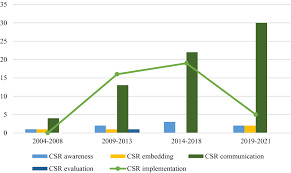
BUILDING RELATIONSHIP WITH MARPU FOUNDATION:
Successful CSR- Marpu foundation collaborations thrive on transparent and honest dialogue. Regular communication fosters a deep understanding of shared goals and challenges. Open and frequent meetings allow for dynamic adjustments and course corrections. Ultimately, a foundation of mutual respect and trust is paramount. This fosters a collaborative spirit where both partners feel valued and empowered to achieve impactful outcomes.
LEVERAGING THE EVALUATION AND MONITORING:
Corporations should strategically leverage their unique skills and resources to complement the Marpu Foundation. Actively engaging employees in volunteering and decision-making processes fosters a sense of ownership. Encourage joint innovation to develop creative and impactful solutions. For long-term sustainability, plan for the future and invest in the Marpu foundation. A well-defined exit strategy ensures that Marpu foundation can continue the work independently. Finally, celebrate successes transparently with all stakeholders. Recognize the contributions of both partners and leverage the collaboration for positive public relations and brand enhancement.
CONCLUSION:
The success of our partnership between CSR and Marpu Foundation highlights the importance of strong collaborations between businesses and NGOs. By working together, we have achieved healthy well being for more than 100 families and built a stronger community. This successful model can serve as a blueprint for future partnerships that address critical social and environmental issues.
#sustainable development goals#csr#ngo partnerships#corporate responsibility#social impact#challenges#investing for future growth#decade of action#partners for positive change#together for SDGs#digital transformation#marpu foundation
1 note
·
View note
Text
#csr#csr initiatives#corporate social responsibility#fiinovation csr#fiinovation#reviews#business#finance#fiinovation reviews#fiinovation linkedin#fiinovation ngo funding company#ngo in delhi#ngo registration#ngos#ngosinmumbai#ngosinpune#ngosinnavimumbai#funding post /#funds needed#csr funding consultants#funding opportunities#funding for startups#funds#charity#fundraiser#csr funds#raise funds#fiinovation impact assessments#assessments#need assessments
0 notes
Text
Why CSR Matters: A Commitment to Society and Sustainability
Corporate Social Responsibility (CSR) is much more than a compliance measure—it’s a moral and strategic commitment that reflects a company’s dedication to the well-being of society and the environment. By aligning business goals with the broader purpose of contributing positively to the communities they depend on, companies can create a lasting impact and foster trust among stakeholders.

#Corporate responsibility#Sustainable development#Corporate social responsibility (CSR)#Sustainability#Corporate sustainability programs#CSR and sustainability#CSR and sustainable development#CSR for climate change#CSR for environmental sustainability#CSR strategies for sustainable business growth#CSR sustainability practices#CSR sustainability strategy#Environmental impact of CSR#Environmental sustainability through CSR activities#Importance of sustainability in CSR initiatives#Social sustainability in CSR#Sustainability and corporate governance#Sustainability in CSR#Sustainable business practices#Sustainable CSR initiatives#Sustainable Development Goals (SDGs)
0 notes
Text
Teaming Up to Make a Difference: Why Partnering with Marpu Foundation is a No-Brainer
Let's face it, being a big corporation isn't just about raking in the dough. It's about giving back, making a positive impact, and showing the world that you care. But let's be real, figuring out how to do that can be a real head-scratcher. That's where Marpu Foundation comes in, like a superhero swooping in to save the day (or at least your CSR strategy).
Why Marpu? Because they're the real deal.
Know-How, Not Just Show-How: These folks aren't just dreamers. They've got the experience, the knowledge, and the actual know-how to turn your good intentions into tangible results.
Transparency, Not Smoke and Mirrors: No hidden agendas here. Marpu's all about keeping it real. They'll show you exactly where your money's going and how it's making a difference.
Custom Solutions, Not One-Size-Fits-All: Your company's unique, and so are your CSR goals. Marpu gets that. They'll tailor a plan just for you, whether it's employee volunteering, donations, or a full-blown partnership.
Community Champions, Not Corporate Clones: Marpu's got deep roots in the communities they serve. They know the people, the problems, and the potential for positive change.
Brand Boost, Not Just a Box-Ticking Exercise: Partnering with Marpu isn't just about doing the right thing; it's about looking good while doing it. A strong CSR reputation can attract top talent, loyal customers, and even investors.
So, if you're ready to level up your CSR game and make a real difference, ditch the generic cookie-cutter approach and team up with Marpu Foundation. Let's create a future where business and social impact go hand-in-hand.
#CSR#SocialImpact#CorporateSocialResponsibility#Nonprofit#Philanthropy#Sustainability#marpu foundation#partnership#environmental impact
1 note
·
View note
Text
Understanding Social Impact Assessment: A Key to Sustainable Development in India with DevAaksh
Introduction
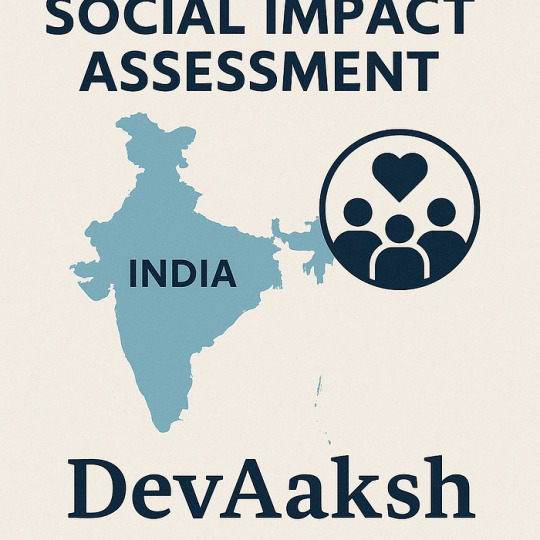
Organizations like DevAaksh are at the forefront, providing expert services in Social Impact Assessment across India. With a commitment to ethical assessments, stakeholder engagement, and evidence-based analysis, DevAaksh is reshaping how development coexists with community welfare.
What is Social Impact Assessment (SIA)?
Social Impact Assessment is a methodological approach used to analyze, monitor, and manage the social consequences of planned interventions. These can range from government policies and infrastructure projects to private-sector developments. In essence, SIA helps answer the question: “How will this project affect people’s lives?”
An SIA typically covers:
Displacement and resettlement impacts
Changes in land use and community structure
Cultural, economic, and health implications
Access to resources and livelihood options
Community perception and resistance
Why is SIA Important in India?
India’s vast cultural and socio-economic diversity makes it a complex setting for development. A single project could affect thousands of lives, displace entire communities, or disturb ecological balance.
Here’s why SIA is vital in India:
Legal Mandate: The Right to Fair Compensation and Transparency in Land Acquisition, Rehabilitation and Resettlement Act, 2013 mandates a Social Impact Assessment for land acquisition projects.
Human-Centric Development: It ensures that the voices of the vulnerable — tribals, women, the poor — are heard before decisions are made.
Prevention of Conflicts: Proper assessment helps prevent delays due to protests or legal challenges from affected communities.
Sustainability: SIA promotes long-term benefits over short-term profits, aligning development with environmental and social justice.
DevAaksh: Empowering Ethical Development
At the heart of effective SIA in India is DevAaksh, a consultancy firm specializing in social research and impact analysis. Known for its transparent, participatory, and data-driven approach, DevAaksh collaborates with both private and public entities to deliver robust assessments that stand the test of scrutiny.
What Makes DevAaksh Stand Out?
Community-Centric Approach: DevAaksh involves local communities at every stage of assessment to ensure that no voice goes unheard.
Expertise Across Sectors: Whether it’s urban infrastructure, mining, renewable energy, or agriculture, DevAaksh tailors each SIA to suit the sector’s unique challenges.
Data-Driven Decisions: The firm employs qualitative and quantitative methods, including field surveys, focus group discussions, and econometric modeling.
Compliance and Integrity: All assessments are aligned with national and international legal frameworks, ensuring full compliance and transparency.
Key Components of an Effective Social Impact Assessment
For an SIA to be genuinely impactful, it must go beyond paperwork. Here’s what makes an SIA effective:
Stakeholder Mapping: Identifying all those who are affected — directly or indirectly.
Baseline Studies: Understanding the socio-economic, health, and cultural status of the affected population before the project starts.
Impact Prediction and Analysis: What changes — positive or negative — will the project bring?
Mitigation Strategies: How will the adverse effects be reduced or managed?
Monitoring and Evaluation: Setting up frameworks to measure the real-time impact during and after project execution.
Community Engagement: Ensuring transparent communication and participatory decision-making.
Case Study: DevAaksh’s Role in a Renewable Energy Project in Rajasthan
In 2023, DevAaksh conducted a comprehensive SIA for a solar farm project in Rajasthan affecting over 15 villages. The assessment included:
Extensive community consultations
Analysis of land use patterns and livelihood impacts
Resettlement planning and skill-development programs
Environmental and cultural sensitivity assessments
The result? A project redesign that minimized displacement, introduced local job creation measures, and improved trust between the community and developers.
Challenges in Implementing SIA in India
Despite the clear benefits, the implementation of SIA faces several hurdles:
Lack of Awareness: Many local communities are unaware of their rights under the SIA mandate.
Political and Economic Pressure: Sometimes, assessments are rushed or manipulated under pressure to clear projects.
Poor Follow-Up: Even if assessments are done, mitigation strategies may not be implemented effectively.
Capacity Gaps: There is a shortage of skilled professionals trained in social sciences and participatory methodologies.
DevAaksh addresses these issues by training local enumerators, partnering with academic institutions, and advocating for policy reforms to strengthen the SIA process.
The Future of Social Impact Assessment in India
As India gears up for smart cities, high-speed railways, and industrial corridors, SIA will only grow in importance. Future trends include:
Digital Tools: Use of AI, GIS, and mobile data collection to make assessments faster and more accurate.
Policy Integration: Making SIA a core part of environmental and financial impact assessments.
Inclusive Planning: Special focus on gender, disability, and minority issues in assessments.
With firms like DevAaksh leading the charge, SIA in India is set to become more robust, inclusive, and impactful than ever before.
Conclusion
Social Impact Assessment is more than just a regulatory requirement; it’s a commitment to ethical and inclusive development. In a diverse and dynamic country like India, SIA serves as the moral compass for policy-makers, developers, and civil society alike. And with trusted partners like DevAaksh, both communities and companies can walk the path of progress together — hand in hand.
FAQs
What is the role of DevAaksh in Social Impact Assessment? DevAaksh conducts thorough SIAs for various development projects in India, ensuring compliance, community participation, and data-driven insights.
Is Social Impact Assessment mandatory in India? Yes, for land acquisition under the 2013 Act, SIA is legally required before project approval.
Who benefits from SIA? Both the affected communities and project developers benefit — communities get a platform to voice concerns, and developers avoid legal and social hurdles.
How long does an SIA usually take? Depending on the project scale, an SIA can take anywhere from 3 to 12 months.
Can SIA stop a project? If the negative impacts outweigh the benefits and mitigation isn’t possible, an SIA report can recommend project alteration or cancellation.
#csr#csrstrategy#responsiblebusiness#ethicalbusiness#Social Impact Assessment#SIA#DevAaksh#Social Impact Assessment in Gurugao
0 notes
Text
Impact Evaluation of CSR Projects: Measuring What Truly Matters

The impact evaluation of CSR projects plays a pivotal role in determining the real effectiveness of a company’s Corporate Social Responsibility efforts. While launching CSR initiatives is important, understanding whether these initiatives are genuinely improving lives and communities is what gives CSR its true value.
Impact evaluation enables businesses to shift from focusing solely on outputs—like number of beneficiaries reached or materials distributed—to outcomes and long-term changes that align with sustainable development goals.
What Does Impact Evaluation Involve?
Impact evaluation is a comprehensive process used to assess the long-term results of CSR projects. It goes beyond routine monitoring and evaluation by identifying how a project has influenced the lives of individuals, communities, and ecosystems.
It answers critical questions such as:
What meaningful changes occurred as a result of the project?
Were those changes aligned with the original goals?
Are the changes likely to last after the project ends?
Benefits of Conducting an Impact Evaluation of CSR Projects
Evaluating CSR impact brings numerous advantages, allowing organizations to optimize their social investment and increase transparency.
Key benefits include:
Demonstrates accountability to donors, regulators, and stakeholders.
Improves project planning with data-driven insights.
Encourages responsible resource use and better budgeting.
Builds community trust and long-term engagement.
Ensures alignment with ESG (Environmental, Social, Governance) goals.
Steps to Conduct an Effective Impact Evaluation
For meaningful results, follow a structured process tailored to the nature of the CSR project:
1. Identify Goals and Impact Indicators
Start by clearly defining what success looks like and how it will be measured.
2. Collect Baseline Data
Gather pre-intervention data for comparison.
3. Monitor Progress
Track implementation activities at regular intervals.
4. Evaluate Post-Project Outcomes
Assess long-term results through surveys, interviews, and statistical analysis.
5. Share Learnings
Report findings transparently and integrate lessons into future CSR planning.
Tools and Approaches
Various tools can help conduct a robust impact evaluation of CSR projects, such as:
Community satisfaction surveys
Outcome mapping
Participatory rural appraisals (PRAs)
Theory of Change and logic models
Case comparisons and counterfactual analysis
Tips for Maximizing Impact Evaluation
To enhance the effectiveness of your CSR impact evaluation:
Include beneficiaries in the planning and evaluation stages.
Use a third-party evaluator for unbiased analysis.
Report results visually using dashboards and infographics.
Focus on sustainability—look beyond short-term success.
Link findings to corporate mission and SDG targets.
Conclusion
In today’s impact-driven world, the impact evaluation of CSR projects is no longer optional—it’s essential. It empowers companies to measure what truly matters, make smarter decisions, and ultimately contribute to lasting social good. When done right, impact evaluation transforms CSR from charity into strategic, measurable, and sustainable action.
#Impact Evaluation of CSR Projects#csr projects#microfinance institutions#impact assessment#csrindia
0 notes
Text
Marpu Foundation: Pioneering CSR Solutions in Today's NGO Landscape

Introduction:
In today's world, Corporate Social Responsibility (CSR) is more than just a buzzword—it's a necessity. With increasing social and environmental challenges, organizations are expected to go beyond profit-making and contribute to societal betterment. NGOs play a pivotal role in facilitating this shift by bridging the gap between corporates and communities in need. The Marpu Foundation is one such organization, committed to delivering innovative CSR solutions that address critical issues like healthcare, education, environmental sustainability, and animal welfare. Through strategic partnerships with companies, Marpu is setting new benchmarks in the NGO sector, ensuring that CSR efforts have a meaningful and lasting impact.
Marpu Foundation's Mission and Vision:
At the heart of the Marpu Foundation lies a vision to foster positive change through sustainable and community-driven solutions. Marpu's mission is to improve the lives of the underprivileged and underserved through targeted interventions in healthcare, education, and environmental conservation. The foundation works closely with corporate partners to design CSR programs that align with business values while also addressing pressing social challenges.
Pioneering CSR Solutions:
Key Projects:-
Project 1: Health Camps in Underserved Areas
Marpu Foundation has partnered with local corporations to organize free health camps, particularly in rural and underserved regions. These camps offer essential medical services, from routine check-ups to specialized treatments, addressing the lack of healthcare facilities in these areas. By collaborating with CSR departments of healthcare companies, Marpu has been able to extend its reach and impact thousands of lives.
Project 2: Educational Support for Underprivileged Children
Education is a cornerstone of Marpu Foundation’s initiatives. In collaboration with corporate sponsors, the foundation has launched programs that provide scholarships, school supplies, and even digital learning resources to underprivileged children. Through mentorship and after-school programs, Marpu ensures that these children not only attend school but thrive academically and personally.
Project 3: Environmental Initiatives
Environmental sustainability is a key focus for Marpu Foundation. From tree-planting drives to water conservation projects, Marpu is working to protect the environment while involving local communities and corporate partners. Recently, the foundation led a waste management initiative, in which volunteers and corporate employees worked together to clean local areas and promote recycling.
Project 4: Animal Welfare Programs
One of Marpu's most unique initiatives is its commitment to animal welfare. In collaboration with veterinary experts and animal lovers, the foundation runs rescue and rehabilitation programs for injured and stray animals. Through its CSR partnerships, Marpu has mobilized resources to build shelters and provide medical care for animals in need, adding a compassionate dimension to their wide-ranging impact.
How Marpu Foundation Stands Out
Marpu Foundation’s approach to CSR is marked by its focus on long-term, sustainable impact. By working closely with corporate partners, Marpu ensures that every CSR initiative is not just a one-time event but a project that delivers continuous value to the community. The foundation's transparency, measurable outcomes, and focus on both people and the environment make it a standout in the crowded NGO landscape.
Conclusion
The Marpu Foundation is redefining CSR by creating solutions that are both impactful and scalable. Through its innovative projects, Marpu is not only addressing immediate community needs but also fostering a culture of social responsibility among corporates. As CSR continues to evolve, organizations like Marpu will lead the way in ensuring that business success is aligned with societal good.
#🌟 Exploring the Impact of CSR with Marpu Foundation 🌟#I’m thrilled to share my latest blog post on how Marpu Foundation is redefining Corporate Social Responsibility (CSR) in today’s NGO landsc#ProjectGreenThumb#HealthcareForAll#and#EducationForEmpowerment#Marpu is setting a benchmark for sustainable impact and community empowerment. 🌍💚#A heartfelt thank you to @MarpuFoundation for their dedication to creating meaningful change and allowing me to contribute to this inspirin#we’re making strides towards a better future!#CSR#MarpuFoundation#SocialResponsibility#Sustainability#CommunityImpact#CorporatePartnerships#Empowerment#SocialGood
1 note
·
View note
Text
Beyond the Gold Rush: Barrick Gold's Ethical Predicament
by: Alejandro, Amank, Aubrey, Edwin, Shardul, Shruti
Company Overview Known for its diversified collection of gold and copper assets, Barrick Gold operates in 13 countries and owns 16 active sites. It was founded by Peter Munk who made it a global mining giant. Its production history is quite impressive while its market value is close to CAD$40 billion thus making it one of the kings of the game. Notwithstanding these achievements; however, Barrick Gold has encountered great moral, human rights and legal problems which has led to its bad name.
Ethical, Human Rights, and Legal Challenges
Though Barrick Gold professes to abide by lofty ethical principles, it has been engaged in various disputes over contraventions of human rights and degradation of the environment, especially within the bounds of Papua New Guinea and Tanzania. The corporation’s Porgera Joint Venture mine has faced challenges accusing it of employing too much violence towards surrounding populations and causing significant harm to nature. Furthermore, Barrick Gold has also been charged with polluting water bodies and invading animal territories. Such claims have raised doubts regarding its true commitment towards sustainable mining operations hence resulting into a host of lawsuits in addition to public investigations.
PESTEL Analysis
To gain a deeper understanding of the external factors influencing Barrick Gold's operations, a PESTEL analysis is essential:
Political: In nations where Barrick Gold operates, political instability has the potential to introduce unpredictability and impede the company’s operations. For instance, the company’s past encounter with challenges attributed to government regulations and taxation in Tanzania indicates that political landscapes should be navigated with care. Economic: Barrick Gold’s profitability can significantly be affected by economic factors such as exchange rate fluctuations and prices for commodities. Therefore, it is important for the company to mitigate the effects of economic risks in order to adapt well to changing market scenarios that will enable it survive at long-term. Social: Social issues are critical in Barrick Gold´s operations like community relations or indigenous rights. The firm must balance between its economic goals and the fulfillment of its social obligations with regard to respect as well as collaboration when dealing with local communities. Technological: Enhancements in technology can help an organization increase its effectiveness and productivity in the mining sector. Barrick Gold has invested more funds into technology to boost its profitability while minimizing adverse ecological effects. Nonetheless, the firm must be aware of such issues as job losses due to automation or other adverse effects on neighboring communities that may arise from new technologies. Environmental: The mining sector faces numerous challenges due to serious environmental problems including climate change, water shortage and extinction of species. To ensure that it survives for long; Barrick Gold should adopt sustainable methods so as reduce its impact on environment. Legal: The operations of Barrick Gold can be fundamentally affected by legal regulations on mining, environmental protection and human rights. For this reason, it needs to observe the law in order to avoid any legal proceedings and build a good image.
Conclusion Barrick Gold Corporation is in a difficult position trying to balance between making money and being responsible. They earned a good sum of money anyhow they also face different problems such as human rights abuses, ethical and lawful problems arisen from their operations. Another strategy which can help Barrick Gold in minimizing reputational risks and boosting trust among its partners is enhancing responsible corporate conduct through more engagement of stakeholders and sustainable development initiatives.

#Barrick Gold#PESTL Analysis#MBA Ethics#business strategy#Corporate Social Responsibility#CSR#mining industry#environmental impact#ethical business practices#Political Risk#Global Economics#sustainability#ethical decision making
1 note
·
View note